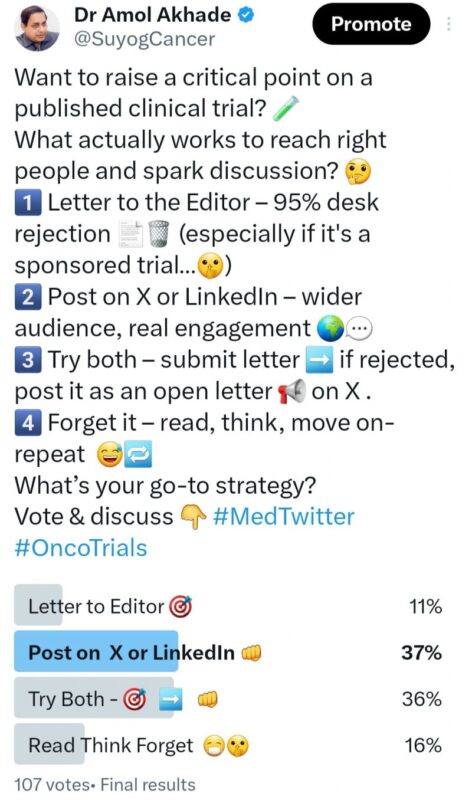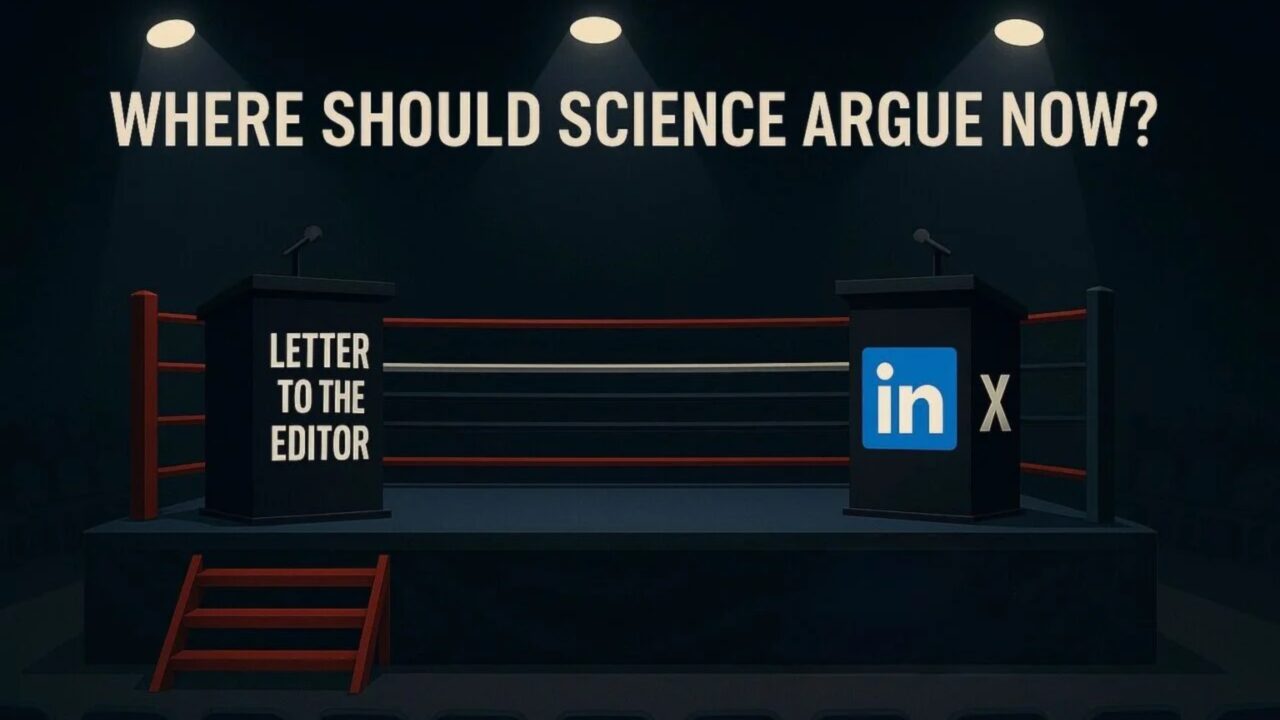A few days ago, Amol Akhade, Consultant Medical Oncologist at Suyog Cancer Clinics, shared a poll on X on what actually works to reach right people and spark discussion. Letter to the Editor, Post on X or LinkedIn, or both of them? We reposted it to gather insights from the oncology community.
The results are now in and they may surprise you.
The majority of researchers indicated they prefer sharing their opinions on social media rather than writing a letter to the editor. According to Amol Akhade, in the pre-social media era, Letters to the Editor were the forum for challenging prevailing narratives. For many researchers, an accepted LTE was a badge of honor – a sign that you were paying attention, thinking critically, and holding the system accountable. But somewhere along the way, the process hardened…
Read further to see his comment on his new findings:
“Are Letters to the Editor (LTEs) losing relevance in the scientific world? Are we witnessing the quiet death of what was once an intellectual battleground?
A recent poll I ran asked how oncologists prefer to raise critical points about published trials. Here’s what we saw:
- Only 11% chose “Letter to the Editor”
- 37% preferred to go public via X or LinkedIn
- 36% wanted to try both
- 16% chose to silently move on
That says a lot about how post-publication dialogue is evolving – or unraveling. Once upon a time, LTEs were where giants clashed.
In the pre-social media era, Letters to the Editor were the forum for challenging prevailing narratives. A sharp LTE in NEJM, Lancet, or JCO could rattle cages, spark policy debates, or even change practice. For many researchers, an accepted LTE was a badge of honor – a sign that you were paying attention, thinking critically, and holding the system accountable.
It was peer review in its purest form – after the spotlight had faded, when only the most careful eyes remained. But somewhere along the way, the process hardened.
Now, LTEs feel like closed loops.
The same editorial teams that approved the original paper are expected to greenlight criticism of it. Many journals lack transparency around LTE rejection. Sponsored trials, powerful affiliations, and media narratives further insulate published studies from scrutiny. And even when LTEs are published, they are often buried, delayed for months, or subject to heavy word limits that blunt their impact.
The outcome?
- Important critiques are filtered or silenced.
- Junior authors are discouraged. And many simply stop trying.
- Enter social media.
For better or worse, X and LinkedIn have taken over as the new arenas of scientific debate. They are messy, unfiltered, sometimes chaotic – but undeniably democratic. A sharp thread can generate more conversation than a buried LTE.
An infographic or carousel can explain methodological flaws better than 400 words in 6-point font. And the engagement – global, real-time, cross-disciplinary – is often more rigorous than journal-moderated replies.
So where does this leave us?
We still need LTEs. We still need journals to foster healthy disagreement, to welcome dissent, to promote accountability. But unless they evolve – transparent processes, independent editorial oversight for post-publication critique, and timely responses – they risk becoming irrelevant relics of a more idealistic era.
In contrast, researchers will continue to take their voices elsewhere – to platforms where truth can’t be desk rejected.”

More posts featuring Amol Akhade.


